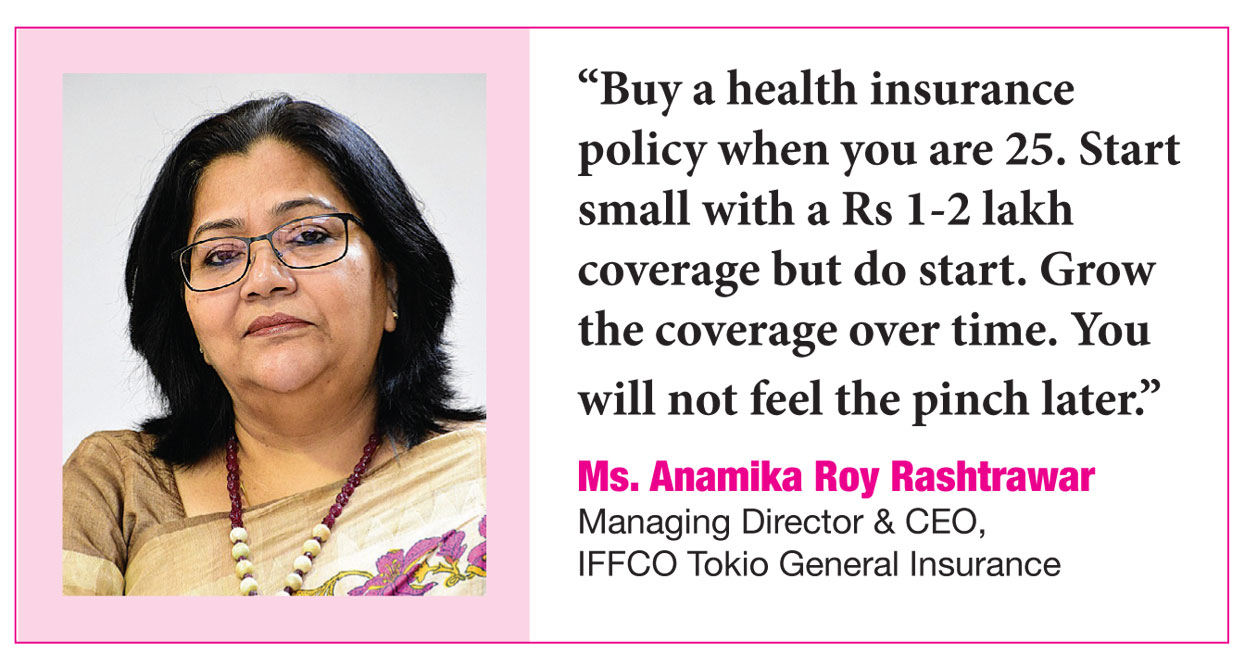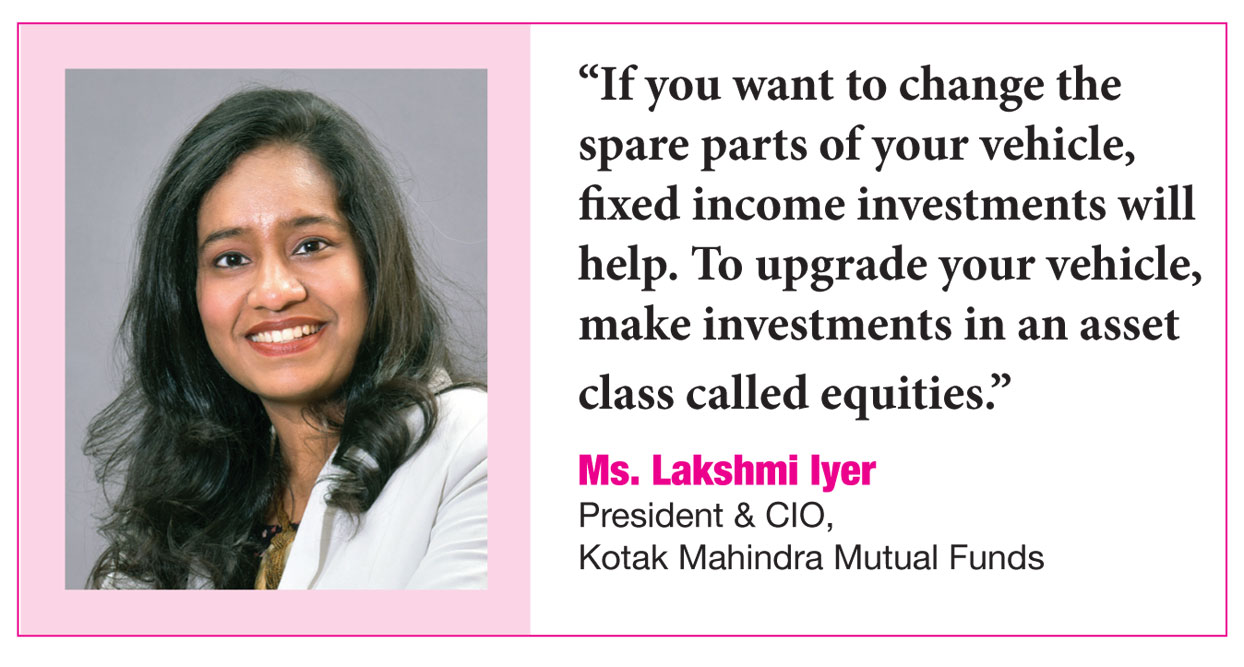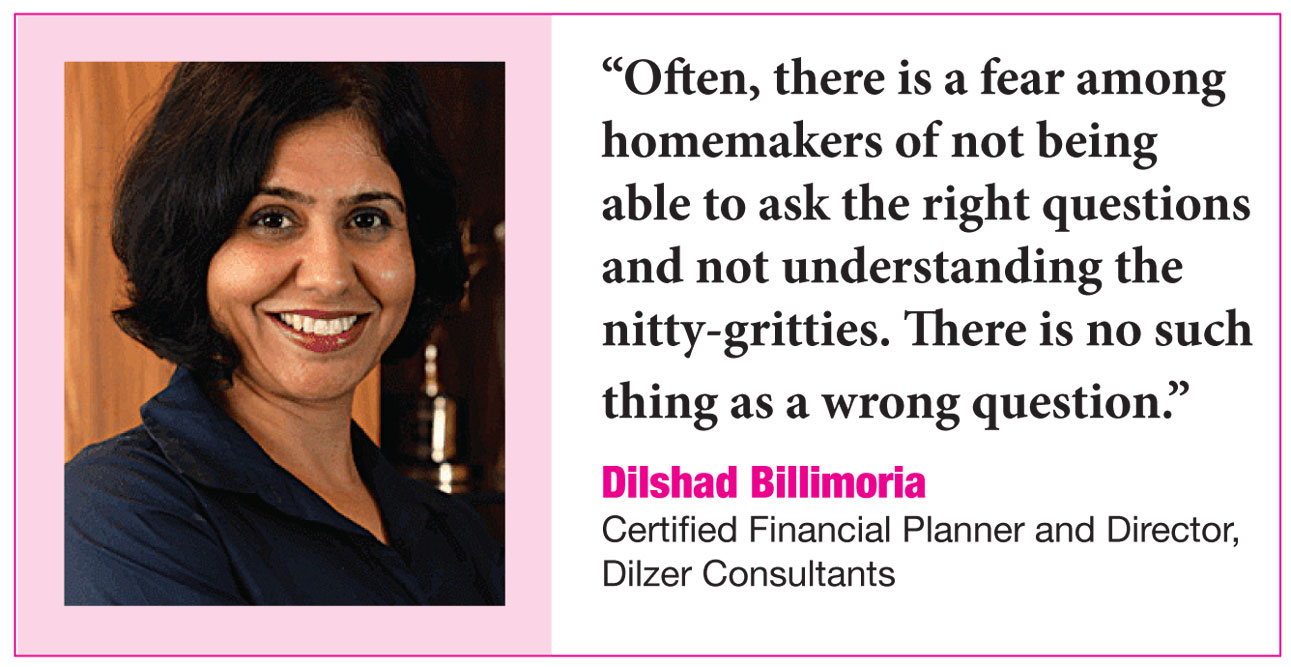On the occasion of Women’s Day, Open magazine, in association with FundooMoney Media, a personal finance e-learning company, organised a webinar with leading women CXO panellists on the need for women to achieve financial independence. The eminent panellists suggested simple and easy steps that women can take to secure themselves with ample health and life insurance and create ample wealth for future needs.
The panellists were: Anamika Roy Rashtrawar, Managing Director and CEO, IFFCO-Tokio General Insurance, Lakshmi Iyer, President and Chief Investment Officer (Debt) and Head, Products, Kotak Mahindra Asset Management Company and Dilshad Billimoria, Certified Financial Planner and Director, Dilzer Consultants, and one of India’s leading financial planners. The discussion was moderated by Udayan Ray, Founder, FundooMoney Media. Excerpts:
Why Women Should Play a Role in Financial Decision Making
Anamika Roy Rashtrawar: It is always important to participate jointly in any financial decision at home. At the time of need, one should be aware of what is available instead of running from pillar to post. Also, joint ownership needs to get created so that you also know how to manage your money in the future.
Lakshmi Iyer: Financial planning is gender-agnostic and the time to do that was yesterday. The analogy I give is that if you ask yourself about a top Michelin star chef and a male is likely to come to your mind. So, cooking which was supposed to be a woman’s domain is being dominated by men. Similarly, men feature in beauty pageants. In sports, women are making their mark in different disciplines like wrestling, badminton, and tennis. Gender stereotypes are getting withered away.
Dilshad Billimoria: We always ensure that women members of clients’ families are present during processes like reviews. We have found that some of the most practical solutions and approaches come from women. Unfortunately, there is often a fear among homemakers that they may not ask the right questions. Or they feel that they don’t understand the nitty-gritties. But there is no such thing as a wrong question.
Protection from Health Expenses with Health Insurance
Anamika Roy Rashtrawar: Being a man or woman doesn’t matter when you buy insurance. As you enter different phases of your life the need for insurance changes. We have the wrong notion that certain critical illnesses come late in life. They are now affecting young women who are now getting afflicted and affected by hard diseases that are incurable.
My suggestion is that for protection have a standard Floater Scheme is a single sum insured floating over the entire family. If you are single, take a policy called Individual Health Protection. You must pad it up with a critical illness cover. Critical illness cover is imperative these days as the numbers are rising and they don’t cost much.You can further pad up with plans that make per day cash payments for hospitalisation expenses, not covered by other health insurance policies, useful during long hospitalisation periods. Don’t reduce your sum insured at any stage. The fallacy among most middle-class families is that serious illnesses happen to others. A COVID hospitalisation cost three times of a normal hospitalisation.
I would also recommend a small amount of money earmarked for emergencies, not covered by insurance policies. They can be built with small contributions over time. This money comes especially handy for paying old-age healthcare support professionals. Health requirements fundamentally remain the same but with age greater provision is required.
Dilshad Billimoria: Many people ask us why they should take additional health insurance when they are covered by their employers. This where they make the biggest mistake. We always encourage men and women to take independent health covers. You don’t know how long you will work with your employers and what are the exclusions. Typically, employers provide group health cover which has more exclusions. We also recommend a corpus for health expenses that will come of use in retirement. Further, we suggest people buy health insurance when they are young so that they benefit from a no-claims bonus.

Anamika Roy Rashtrawar: My humble submission is that even if you are employed and don’t have a base policy, take a top-up health cover, critical illness, and hospital cash cover. They come in handy when you leave a job and are in transition. We got to see this issue during the COVID pandemic when some people lost their jobs. Start small but do start. Start when you are 25 and take a small policy of Rs 1 lakh, R 2 lakh or Rs 3 lakh. Grow it and you will not feel the pinch later.
I would like to add as a woman, whether they are financially contributing or not, should buy a personal accident policy. There are illnesses like breast and uterine cancer that paralyse you completely and prevent you from doing your daily chores. Ensure you have enough personal accident policy which covers not just death but disability too. When you are disabled not only do you lose your income but also must hire someone to support you. Personal accident policies are not expensive and are easily available. The cover typically needs to be 60 times monthly income.
Lakshmi Iyer: The necessity of having an emergency fund is very under-emphasised. People feel nothing bad can happen to them. The last 12 months have proved that everything can happen to everybody. Emergency has a bad habit of cropping when least expected. An emergency fund must be lazy money. You can’t expect every money to be put to work. You can’t give wings to the money, deploy it in the market and plan to tap into it when the need arises. It doesn’t work that way. What would have happened if you needed the money in March 2020 and a good chunk of it was inequities which it was never meant to be?
Rule number 1 is that your emergency fund should be in line with your lifestyle and liabilities. It could be 2, 3 or 6 Avenuesmonths of your current expenses. The amount will differ with people and their cashflows. Rule number 2 is never ever taking high-end duration or credit risk for an emergency fund. Also, don’t try to multiply it through equities. The biggest blasphemy people can commit is trying to do miracles with an emergency fund. The money can be put to work in a limited manner without putting it to significant risk by investing the money in overnight funds or liquid funds. This money needs to be absolutely safe.

Dilshad Billimoria: For emergency funds, we typically recommend 4-6 months of expenses and add loan repayments to it. For a single working woman, we try and extend that to 8-12 months. In case women plan to take a sabbatical, travel, or start a business, we find out the period during which they will not have a regular income. We then plan for inflows or cashflows that she can receive.
This is like those women who want to take a pregnancy break which means being out of action for 6-9 months. For such women, we try to create a separate emergency fund. We also help create separate emergency funds, especially for medical emergencies for women taking care of aged parents. The money would go to short-tenured debt investments like overnight, liquid, and ultra-short-term debt funds depending on the time horizon.
Financial Protection with Adequate Life Insurance
Dilshad Billimoria: For working women, we recommend life insurance coverage based on factors like their goals, expenses, and liabilities. Then, we segregate based on income contribution. So, if the woman is contributing 40% to the household expenses and the male 60%, we apportion the life insurance cover accordingly. We also account for existing life insurance covers and assets.
We encourage businessmen to take the MWP Act insurance benefits. Since they have many liabilities, when they buy term insurance, they attach the tag of Married Woman Property Act (MWP) benefits so that the wives are protected from creditors in the eventuality of their demise. This means that the benefit of the term plan would go to only the spouse, the children or both. This segregates business income and personal savings. There are other life insurance plans like Keyman Insurance, but our recommendations depend on a case-to-case basis.

Anamika Roy Rashtrawar: Information about insurance policies bought by each spouse should be known to each partner and grown-up children. They also should know where the securities are kept. My suggestion to women is that be a partner in decision making and go through the whole financial journey
Creating Wealth to Fulfil Every Need
Lakshmi Iyer: Like every Hindi movie has a villain, in investments it is inflation. You need to beat inflation and merely saving is not enough. Since money doesn’t grow on trees, you need to work hard to make the money grow. To make the money grow substantially in the long-term, you need to take the decision to invest in the market and endure its volatility. That first step is inevitable. I keep saying that if you want to change the spare parts of your vehicle fixed income investments will help. But if you aspire to upgrade your vehicle, that is possible through investments in an asset class called equities. Therefore, it is important to imbibe these assets in your mainstream investments.
The role term insurance plays in your life, the same role is played by gold in your financial portfolio. Have gold as the last person standing in your portfolio. So, if something happens to your other investments, gold has the last laugh. It acts as insurance to your portfolio. It should be 5-15% of your investments. Now, you have the paper form of ownership of gold in the form of gold ETFs and Sovereign Gold Bonds.

Dilshad Billimoria: Women tend to be very risk-averse. I feel that this is because they multi-task. They fear a disruption in their careers and want to protect their savings to meet their needs. They also want them easily available. Women typically ask for high returns with low risk. But that isn’t how things work. I think understanding the post-tax and post-inflation returns for investments in different asset classes is the kind of informed decision women need to make when investing. Women could also create a separate corpus for their own goals like starting a business.
Lakshmi Iyer: You need to have different ingredients in your portfolio to make retirement a cakewalk. Trust me, it is not difficult. But one needs to act today. If women can plan for dishes and meals well in advance, they can do the same with their investments. Ultimately, financial planning is not rocket science.
(A marketing initiative by Open Avenues)
More Columns
Is Sachin Tendulkar Tipped To Be The Next BCCI President? Short Post
ChatGPT Comes to the Classroom Ullekh NP
Rebels Without a Cause Anup Rau